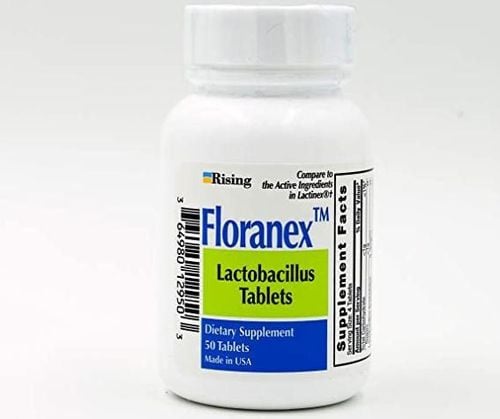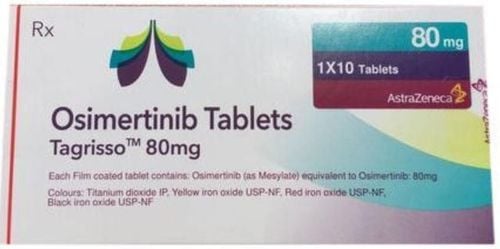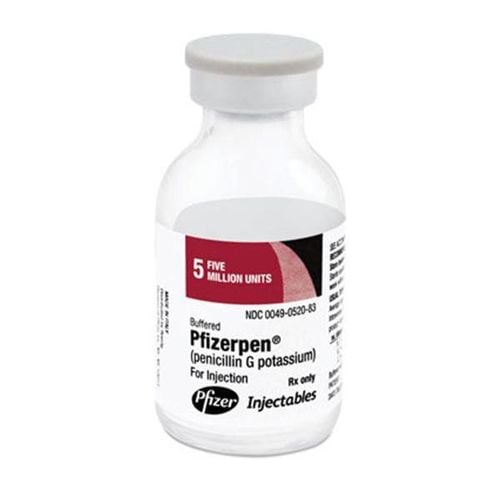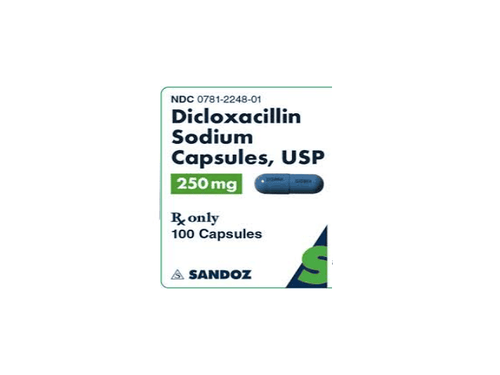This is an automatically translated article.
Fluoroquinolone antibiotics have effects on many different bacterial systems, so they are used to effectively treat some infections. To ensure that the drug is used safely, the following article will provide you with instructions on how to use this antibiotic.
1. What is Fluoroquinolone antibiotic?
The Fluoroquinolone group of antibiotics treats or prevents certain infections caused by bacteria. Some antibiotics in this group with generic or brand names include:
Ciprofloxacin (Cipro); Delafloxacin (Baxdela); Levofloxacin (Levaquin); Moxifloxacin (Avelox); Ofloxacin.
2. Indications of Fluoroquinolone antibiotics
The drugs of the fluoroquinolone group are indicated for use in the treatment of bacterial infections such as:
Bronchitis caused by bacteria, pneumonia, sinusitis; Infections of the urinary tract , blood and in the abdominal cavity; Musculoskeletal, skin and tissue infections; Typhoid fever; Anthrax ; Gastroenteritis caused by bacteria. The FDA has recommended that fluoroquinolones not be used in the treatment of sinusitis, bronchitis, and urinary tract infections unless complications occur or in cases where the patient cannot take other antibiotics. This is typical for patients who are allergic to penicillin or have serious bacterial infections.
3. Contraindications to the use of fluoroquinolones
In the following cases, the patient must not use Fluoroquinolone antibiotics:
The patient is allergic to antibiotics of this group; Patient has diarrhea caused by Clostridium difficile bacteria; People with diabetes or hypoglycemia; Patients with glucose-6-phosphate dehydrogenase deficiency (G6PD) or low blood magnesium and potassium levels; Musculoskeletal disorders or myasthenia gravis; Cardiovascular conditions; Tendonitis , tendon rupture ; Diseases with impaired kidney function such as chronic kidney failure, artificial kidney; Aortic disease such as aortic aneurysm , with aortic surgery; Having some rare syndrome such as Marfan; Ehlers-Danlos; congenital myasthenia gravis; Loeys-Dietz.

Thuốc kháng sinh Fluoroquinolon có chỉ định sử dụng trong điều trị các bệnh nhiễm trùng do vi khuẩn
4. How to use Fluoroquinolone antibiotics
Through the antibacterial spectrum and pharmacological effects that can be divided into 2 groups:
Old generation: Ciprofloxacin, ofloxacin, norfloxacin New generation: Gemifloxacin, moxifloxacin, levofloxacin For patients with kidney failure, need reduce antibiotic dosage when using, except in case of using moxifloxacin.
For older generation fluoroquinolones are usually prescribed twice a day. Meanwhile, the new generation group and the extended-release form of ciprofloxacin are injected once a day. Therefore, to ensure the effectiveness of the drug as well as the safety of the user's health, patients need to adhere to the correct dosage that the doctor has given.
5. Common side effects
Some common and reported side effects by users include: Nausea, vomiting, diarrhea, headache, dizziness, trouble sleeping or not sleeping well, feeling lightheaded.
In addition, the body is likely to react to these antibiotics and cause more serious reactions, including:
Inflammation and rupture of tendons; rupture of the aorta; Numbness or tingling, "pins and needles" in the hands and feet; Weakness and muscle pain; Painful joint swelling; Irregular heartbeat; Vibration or tinnitus; Vision problems; Skin rash; Skin is sensitive to sunlight. On the other hand, there are some reports of emotional and psychological side effects after taking the drug:
Anxiety; Sad; Illusion; Depression; The bewilderment. The serious side effects noted above may begin after the first or second dose.
6. What should be paid attention to when using Fluoroquinolone antibiotics?
FDA has updated some of the latest information about this group of antibiotics including:
Use of fluoroquinolones has a high risk of inflammation and tendon rupture; This antibiotic is better for people over 60 years of age, organ transplant recipients such as kidney, heart or lung, and people who are taking steroid medications; Use should be discontinued at the first sign of pain, swelling or tendonitis. Avoid strenuous exercise or movement in the affected area and notify your doctor immediately to switch to another appropriate medication; The rate of aortic rupture or damage is also higher with the use of fluoroquinolones. Should stop using immediately when there are signs of sudden severe pain in the stomach, chest or back and go to a medical facility immediately for examination and treatment.

Sử dụng thuốc kháng sinh Fluoroquinolon có nguy cơ cao bị viêm và đứt gân
7. Weigh the benefits and risks when using
For some types of sinusitis, chronic bronchitis, and urinary tract infections, the risks of Fluoroquinolone antibiotics outweigh the benefits for most people.
For patients with certain serious infections, such as pneumonia or abdominal infections, the benefits of fluoroquinolones outweigh the risks. Therefore, you should not self-medicate, but need to see a doctor to be examined and prescribed according to reasonable indications.
Please dial HOTLINE for more information or register for an appointment HERE. Download MyVinmec app to make appointments faster and to manage your bookings easily.
Reference source: webmd.com












